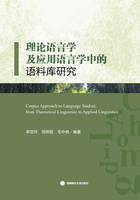
6. Conclusion and pedagogical implications
This paper has discussed the principles of the choices of the FPPs, I and we in Chinese EFL students' academic discourse, mainly by illustrations and a few instances assisted corpus data. It is proposed that the set of principles push the student writers to choose either I or we or other impersonal expressions in their academic texts. At the same time, the other factors that influence the employment of the two FPPs are also discussed. Indeed, the novice writers would need to know that during the interaction with the readership, there are principles and other factors that may influence their choice of using I, we and various other impersonal expressions. An example of one of the principles that the student may already be aware of is the Modesty Principle. If they want to sound modest, they would probably choose either I or we or other expressions. However, students may be unaware of other factors such as the Authority Principle and the influence of the concept of collectiveness enshrined in the Chinese culture. In order to sound affirmative, the Chinese student writers may use we instead of I even though the essays are single authored. Their decisions in turn, will lead to either successful or face-threatening pragmatic effects. Therefore, the students should be informed that they have choices at their disposal, of utilising either I or we or other impersonal expressions. What matters is that different decisions would result in different pragmatic effects. They would need to decide between keeping themselves from being challenged and taking the risk of claiming authority. Meanwhile, introducing these principles in EAP classrooms, academic writing teachers would help the student writers to gain a better understanding of why and when to use or not use the FPPs in their academic texts.